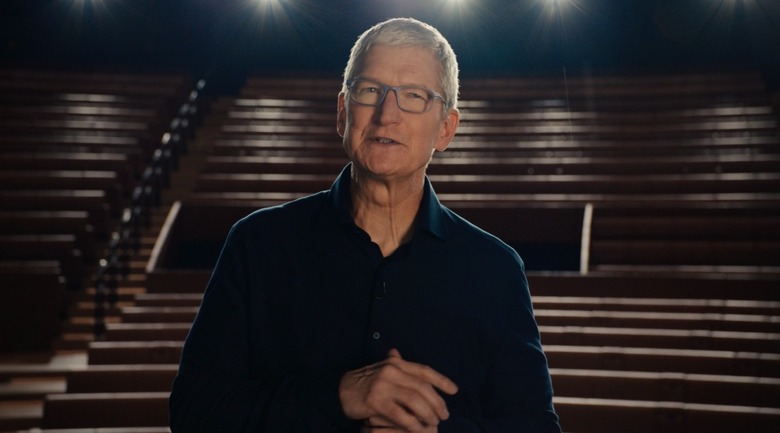Steve Jobs Would Have Loved Tim Cook's Response To The Facebook Vs. Apple Drama
- Apple CEO Tim Cook on Thursday night weighed in on the Facebook vs Apple drama this week that's resulted in the social networking giant taking out full-page newspaper ads against the iPhone maker.
- Cook via Twitter defended the App Tracking Transparency feature in iOS 14, which will require apps to get their users' express permission in order to track them around the web.
- Facebook's ads claim Apple's stance here will hurt small businesses.
There is something unmistakably ironic in Facebook, the social media leviathan that you could argue has done more than most companies to try to kill the news business, now relying on said news business in the form of full-page newspaper ads to defend itself. The ads were published this week and blast Apple for new privacy features from the iPhone maker that Facebook thinks might cripple its lucrative ad business — which, among other things, tracks users around the web. And Thursday evening, the Facebook vs Apple drama got even more interesting.
Facebook took out full-page ads against Apple for the second day in a row on Thursday inside several major newspapers, like The Wall Street Journal and The New York Times. The social network used those ads to lament that Apple's "forced software update" in the form of forthcoming changes to iOS 14 will leave "your favorite cooking sites or sports blogs" with no way to make as much money from personalized ads as they ostensibly could before. So get ready, in other words, for free sites and apps that you love to start forcing you to fork over money for new subscriptions to keep them afloat. Except, well, it's not really like that at all, according to Apple CEO Tim Cook — who has released a statement about all this that says, in effect, any problems along these lines will in fact be Facebook's fault. Not Apple's.
With some barely veiled shade, Cook tweeted in response to this now-widely publicized privacy spat between the two companies that "Facebook can continue to track users across apps and website as before." The thing is, Cook continued, Apple is just going to force Facebook to get peoples' express permission for this kind of thing now.
We believe users should have the choice over the data that is being collected about them and how it's used. Facebook can continue to track users across apps and websites as before, App Tracking Transparency in iOS 14 will just require that they ask for your permission first. pic.twitter.com/UnnAONZ61I
— Tim Cook (@tim_cook) December 17, 2020
We actually knew this was coming — this is not a new thing. Going forward, app developers will have to add privacy labels to their App Store apps to explain exactly what sort of user tracking powers their apps have to avoid delisting. The privacy features were unveiled back at WWDC 2020, sparking a wave of worry from several companies who make money from user data and user tracking.
Some users will no doubt be stunned and taken aback by Apple confronting them with the myriad ways Facebook tracks their activity. Cook's response via Twitter to this Facebook drama, though, is reminiscent of similarly worded remarks that his predecessor gave regarding privacy toward the end of his life — such that, it's fair to say that late Apple co-founder Steve Jobs would definitely approve of Cook's stance here.
Back in 2010, at the AllThingsD conference that year, Jobs outlined a vision of how to appropriately handle users' privacy in almost precisely the way Apple is now doing — and worded almost exactly the way Cook described things in his tweet. "Privacy means people know what they're signing up for — in plain English, and repeatedly," Jobs said at the conference. "I believe people are smart and some people want to share more data than other people do. Ask them. Ask them every time. Make them tell you to stop asking them if they get tired of your asking them. Let them know precisely what you're going to do with their data."
The irony of ironies here is that, funnily enough, Facebook CEO Mark Zuckerberg was in the audience as Jobs said those words. It's like an old Ben Folds song that I used to like goes — the years go on, and we're still fighting it.
